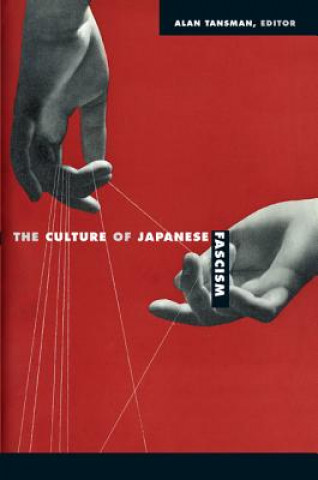
Dostava
Savjetnik za kupnju





Proizvod vam ne odgovara? Nema veze! Možete nam vratiti unutar 30 dana
 Poklon bon
u bilo kojoj vrijednosti
Poklon bon
u bilo kojoj vrijednosti
S poklon bonom ne možete pogriješiti. Za poklon bon primatelj može odabrati bilo što iz naše ponude.
Culture of Japanese Fascism
 Engleski
Engleski
 100 b
100 b
30 dana za povrat kupljenih proizvoda
Moglo bi vas zanimati i


This bold collection of essays demonstrates the necessity of understanding fascism in cultural terms rather than only or even primarily in terms of political structures and events. Contributors from history, literature, film, art history, and anthropology describe a culture of fascism in Japan in the decades preceding the end of the Pacific War. In so doing, they challenge past scholarship, which has generally rejected descriptions of pre-1945 Japan as fascist. The contributors explain how a fascist ideology was diffused through Japanese culture via literature, popular culture, film, design, and everyday discourse. Alan Tansman's introduction places the essays in historical context and situates them in relation to previous scholarly inquiries into the existence of fascism in Japan. Several contributors examine how fascism was understood in Japan during the 1930s: by influential theorists of fascism, by an antifascist literary group, and by leading intellectuals responding to the repercussions of capitalist modernization. Others explore the idea that fascism's solution to alienation and exploitation lay in efforts to beautify work, the workplace, and everyday life. Still others analyze the realization of and limits to fascist aesthetics in film, memorial design, architecture, animal imagery, a military museum, and national exposition. Contributors also assess manifestations of fascist ideology, or resistance to it, in the work of renowned authors including the Nobel-prize-winning novelist and short-story writer Kawabata Yasunari and the mystery writers Edogawa Rampo and Hamao Shiro. In the work of these final two writers, the tropes of sexual perversity and paranoia open a new perspective on fascist culture. This volume makes fascism in Japan available as a critical point of comparison for scholars of fascism worldwide. A concluding piece models such work by comparing Spanish and Japanese fascisms.
Informacije o knjizi
 Engleski
Engleski




 Kako kupovati
Kako kupovati





















